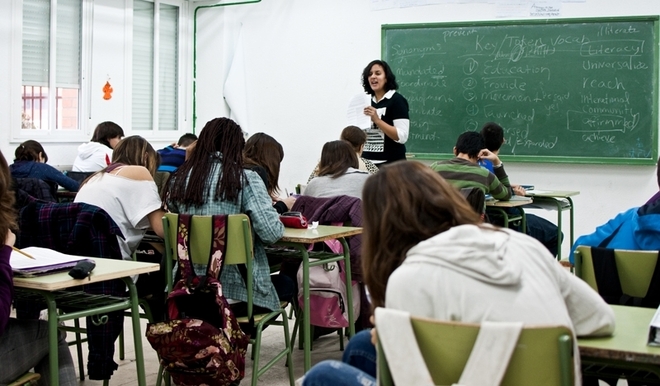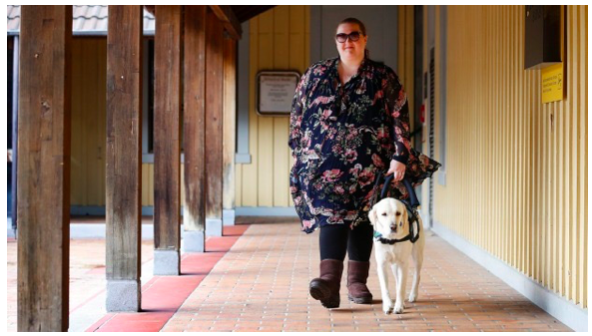As a Fulbright English Teaching Assistant (ETA) in Madrid, Spain, I worked with over 120 students in a citywide bilingual program. The highlight of my year was working with 14- and 15-year-olds in the Global Classrooms program for Fulbright ETAs to Spain. In 10 Madrid high schools, Fulbright ETAs helped to prepare students for an annual Model United Nations conference. Actively participating in a Model U.N. conference is a rigorous endeavor for any high school student, but even more so when they are expected to participate in another language. I adored my students, but they succeeded in proving every cliché about high schoolers true; they often complained, whined and put more effort into not doing work than doing it. They didn’t want to participate in an extracurricular activity involving more research, writing, or public speaking in English. My students were very opinionated about their hesitation and initial dislike of preparing for the conference.
I myself was ready to take on the challenge of developing and strengthening my students’ skills. As Fulbright ETAs, doing this would be an easy enough task compared to providing our students with the more abstract lesson required for them to be successful at the conference: we had to enhance our students’ understanding of the importance of diplomacy. We had to find ways to help them recognize the value in promoting thoughtful conversations and effective relationships. Our students had to think more outside of their classrooms, school, neighborhood, city and country, in order to understand better that actions and relationships overseas can have an impact on them. I had to teach my students an abstract concept that I myself was actively experiencing and reflecting on during my Fulbright grant.
When you are a Fulbright ETA, you always have to be “on,” readily available to answer any question or assuage concerns your students, new peers, neighbors and friends may have. As an American abroad, you can become the be-all and end-all resource for everything American, but you will want to avoid proving every cliché about Americans true. You must be available to answer many questions about the United States, sometimes whether you like it or not, and this can be a real learning experience. At the end of the school day, you can leave your Fulbright ETA self at your assigned school, but you can never leave your American self. As Fulbrighters, we become educators to everyone we meet, not just our students. We inform others about the United States. We can dispel myths and correct misinformation while making a temporary new home for ourselves in our host countries.
Sometimes, you will have a great desire to answer questions and explain American laws, politics, customs, or food. Other times, the discomfort generated by questions about the U.S. is so palpable you almost wish you didn’t have to speak for the whole country. Therein lays the beautiful and positive dilemma of being a Fulbright ETA. How one handles those sometimes uncomfortable conversations with grace and tact can make for a successful Fulbright experience. But it is not until you are a Fulbrighter abroad that you really get an in-depth understanding of how to manage these kinds of conversations. Having experiences in which you have to speak for a culture and country is how we truly learn diplomacy, and, also how we can teach it. When you are “the foreigner” to others and they are “the foreigner” to you, you are compelled to communicate and find things that will help you to connect with others. This is what my students had to do during the Model U.N. conference and what I had to do each day as a Fulbrighter in Spain.
After weeks of researching, writing and debating, my students ended up thoroughly enjoying themselves at the Model U.N. conference. The conference flowed naturally, and they met other bilingual students and formed new friendships. They garnered the confidence to speak about their assigned country with assurance and listened actively when questioned about its policies. They were graceful and exercised tact, and had learned that seeking to foster mutual understanding is an accomplishment in and of itself. I had learned the very same.
My advice to prospective applicants is to seek out opportunities that involve working with diverse groups of people. Whether it is through internships or community service, it is important to place yourself in settings that will encourage engaging in all kinds of conversations and events. Take time to reflect on how you might navigate your way through tough conversations during your grant. Be ready to dispel myths about Americans that may make you giggle, frown or feel surprised. If you have reflected and are eager to pursue a Fulbright grant, then be prepared for one of the most amazing experiences of your life.
Photo: Linnette Franco, 2009-2010, English Teaching Assistant to Spain, helping her students interpret a popular American rap song during one of her English classes (photo courtesy of Jermil Sadler)



2 Comments
It is really nice to study and teach abroad. How I wish there is also program like this for non-US residents.
Sol, there is a similar program for Filipino students to teach Tagalog in the United States called the Fulbright Foreign Language Teaching Assistant Program. Click on the following link to learn more: http://fulbright.state.gov/participating-countries/east-asia-and-the-pacific/philippines.html#grants. Good luck!